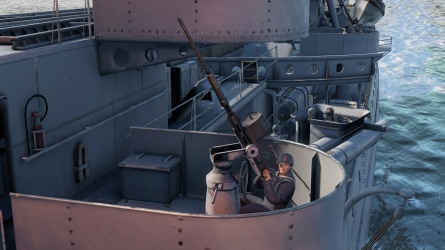20 mm/70 Oerlikon 3S (20 mm)

Contents
Description
Write an introduction to the article in 2-3 small paragraphs. Briefly tell us about the history of the development and combat using the weaponry and also about its features. Compile a list of air, ground, or naval vehicles that feature this weapon system in the game.
Vehicles equipped with this weapon
General info
Tell us about the tactical and technical characteristics of the cannon or machine gun.
Available ammunition
Describe the shells that are available for the weapon and their features and purpose. If it concerns autocannons or machine guns, write about different ammo belts and what is inside (which types of shells).
Comparison with analogues
Give a comparative description of cannons/machine guns that have firepower equal to this weapon.
Usage in battles
Describe the cannon/machine gun in the game - its distinctive features, tactics of usage against notable opponents. Please don't write a "guide" - do not impose a single point of view, but give the reader food for thought.
Pros and cons
Summarise and briefly evaluate the weaponry in terms of its characteristics and combat effectiveness. Mark pros and cons as a list.
Pros:
Cons:
History
The Oerlikon 3S is a powerful and effective 20 mm autocannon that served on all sides during World War II. The origin of the Oerlikon goes back to World War I with the Becker M2 20x70RBmm cannon, itself an upgrade to a 19 mm design that was refined by Spandau Arsenal. Seeing limited use on aircraft of the Luftstreitkräfte (Imperial German Air Force), Becker used an advanced primer ignition blowback action to fire at 300 rounds per minute. Germany lost World War I, however, and the terms of the Treaty of Versailles meant that they couldn't continue production of it. The design was sold to the Swiss firm SEMAG in 1919 which produced the heavier 20x100RBmm SEMAG L firing at a rate of 350 rpm, until the firm went under in 1924.
After this event, Oerlikon bought all the rights, parts, and engineers and continued production as the Oerlikon L and in 1927 added the Oerlikon S to their production line. The Oerlikon S fired an even larger 20x110RBmm cartridge at a much higher muzzle velocity but at the cost of a slower rate of fire of 280 rpm. The Oerlikon 3S was a further improved version of the Oerlikon S. The Italians purchased a small number of these guns in 1941. While superior to their own domestically made 20 mm cannons the 20 mm/65 Breda and 20 mm/70 Scotti-Isotta Fraschini mod.1939, it was not made the standard issue naval anti-aircraft gun during World War II.
Media
Excellent additions to the article would be video guides, screenshots from the game, and photos.
See also
Links to the articles on the War Thunder Wiki that you think will be useful for the reader, for example:
- reference to the article about the variant of the cannon/machine gun;
- references to approximate analogues by other nations and research trees.
External links
Paste links to sources and external resources, such as:
- topic on the official game forum;
- other literature.



